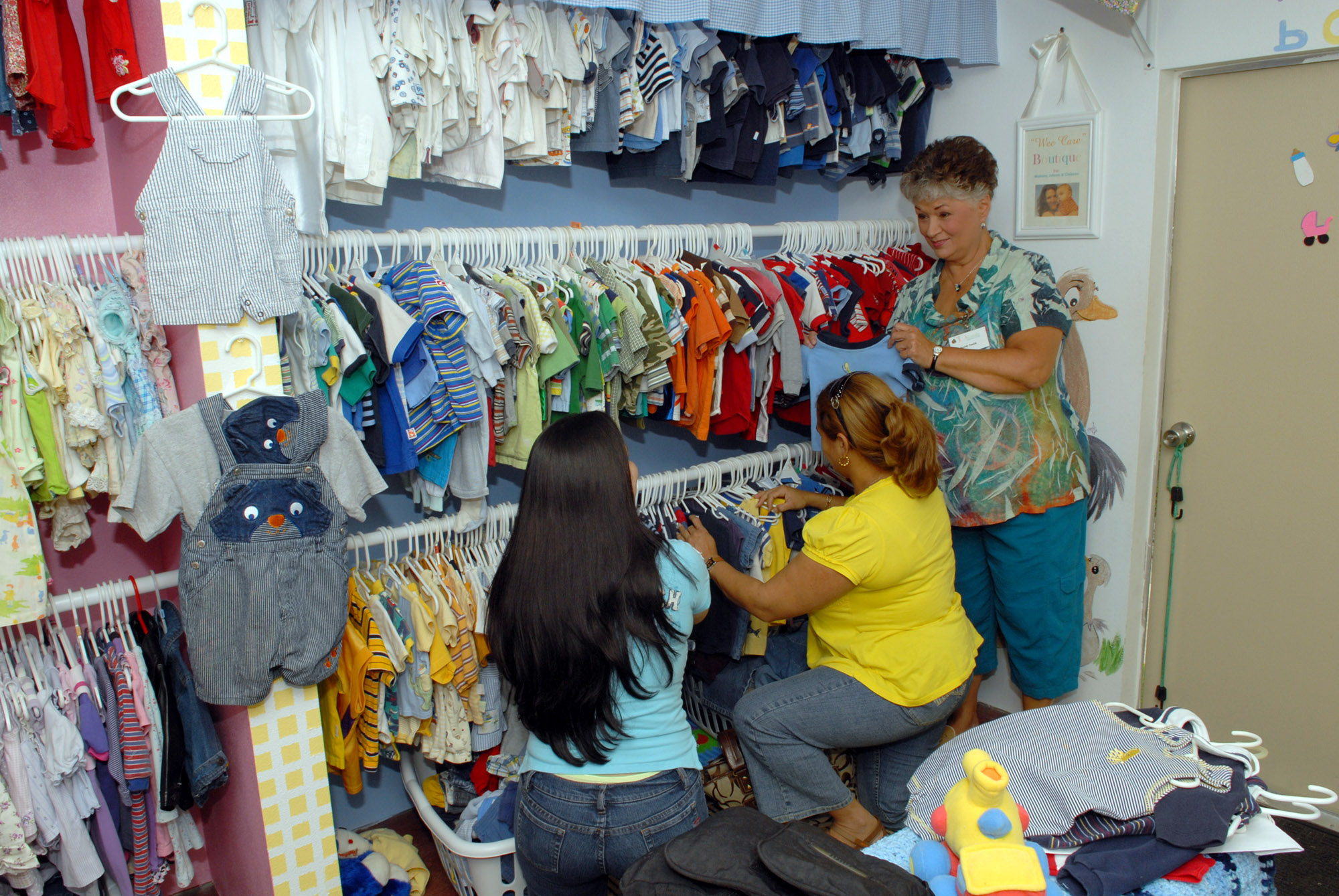
EDITOR’S NOTE: Sunday (Jan. 21) is Sanctity of Human Life day in the Southern Baptist Convention.
WASHINGTON (BP) — Pregnancy resource centers continue to carry on the vital, pro-life work of serving vulnerable women and unborn children in the face of ongoing, adversarial campaigns by abortion rights advocates and the growing effort to regulate their work by state and local governments.
 Sanctity of Human Life Sunday will arrive Jan. 21 at a time when the U.S. Supreme Court will be preparing to consider a case that might determine the future of the pro-life pregnancy center movement in America. Abortion rights organizations will be hoping for a sweeping victory from the high court even as they maintain their attacks on what they call “fake clinics.”
Sanctity of Human Life Sunday will arrive Jan. 21 at a time when the U.S. Supreme Court will be preparing to consider a case that might determine the future of the pro-life pregnancy center movement in America. Abortion rights organizations will be hoping for a sweeping victory from the high court even as they maintain their attacks on what they call “fake clinics.”
Meanwhile, tens of thousands of volunteers will continue to help at pregnancy resource centers that provide a variety of services to pregnant women. These centers that have sprung up throughout the country since the justices legalized abortion in 1973 are crucial to the pro-life cause, movement leaders say.
The centers “embody the very best of the pro-life movement,” Southern Baptist ethicist Russell Moore told Baptist Press in written comments. “Every day, thousands of pro-life counselors, doctors and advocates give real help to vulnerable women and families, many of whom have nowhere else to go.
“Treating human life with dignity matters just as much for these women as it does for their unborn children,” said Moore, president of the Ethics & Religious Liberty Commission (ERLC). “Pregnancy care centers powerfully demonstrate this whole-life compassion that honors the image of God in all.”
 Moore said he is “incredibly thankful for the work these centers do, and for the hope and leadership they offer the entire pro-life community.”
Moore said he is “incredibly thankful for the work these centers do, and for the hope and leadership they offer the entire pro-life community.”
Pro-life lawyer Anne O’Connor told BP the centers “are the arms of the pro-life movement, providing a safe haven where abortion-vulnerable women can work through their options without any pressure.”
“Through pro-life pregnancy centers, we can empower vulnerable women who have nowhere else to turn with the hope and support they need to choose life for their unborn children,” said O’Connor, vice president for legal affairs of the National Institute of Family and Life Advocates (NIFLA).
Many of the pro-life centers are staffed by physicians and nurses and provide ultrasounds that demonstrate the humanity of the unborn child. The centers’ free services also can include medical consultations, baby clothing and diapers, maternity housing, job training, mentoring programs, and prenatal and parenting classes.
NIFLA — a nationwide network of more than 1,400 pro-life pregnancy centers — is at the center of the pivotal case that the Supreme Court is expected to consider during the early months of 2018. The justices have agreed to rule on the challenge by NIFLA and two pro-life pregnancy centers to a 2015 California law that requires such centers to notify their clients of the availability of abortion services elsewhere.
The Reproductive FACT Act requires licensed pregnancy centers to post a notice for clients that says, “California has public programs that provide immediate free or low-cost access to comprehensive family planning services (including all FDA-approved methods of contraception), prenatal care, and abortion for eligible women. To determine whether you qualify, contact the county social services office at [insert the telephone number].”
The law also mandates each unlicensed center provide notice of its lack of state licensure as a medical facility and lack of a licensed medical provider who directly supervises services.
Under the law, a penalty for a first-time offense is $500, while each subsequent violation can result in a $1,000 fine.
NIFLA “is confident” the high court will find California’s law unconstitutional because it compels speech, O’Connor said. “California’s attempt to force pro-life, non-profit and faith-based charities to promote a state-sponsored abortion agenda counts among the most flagrant violations of the First Amendment. The First Amendment exists to protect American citizens from being told what they can and cannot say by the government.”
Yet, if the justices uphold the law, pro-life centers “across the nation could be fined out of existence for non-compliance,” she told BP. “Disadvantaged women seeking a way to choose life for their unborn children would be left with nowhere to turn. A ruling of this nature would also have far-reaching implications for religious freedom and the church.”
California is not alone in requiring pregnancy resource centers to communicate certain messages. Hawaii and Illinois have enacted similar laws.
Local governments also have placed speech requirements on pro-life pregnancy centers, mandating they post signs, for instance, that say they do not provide abortions or contraceptives or make referrals for the services. Courts have invalidated all or most of such mandates in Austin, Texas; Baltimore; Montgomery County, Md.; and New York City.
On Dec. 11, however, the Hartford, Ct., City Council approved an ordinance that prohibits pro-life centers from communicating misleading information and requires them to inform clients whether a licensed medical professional is on duty.
NIFLA hopes the Supreme Court “will put an end to this harassment against agencies that help thousands of disadvantaged women each year,” O’Connor said.
The legislative efforts by states and cities are relatively new, but attacks on the reputation and work of pregnancy resource centers are not.
Leading pro-choice organizations such as NARAL Pro-choice America and Planned Parenthood Federation of America have long vilified pro-life centers. On its website, NARAL says, “So-called ‘crisis pregnancy centers’ (CPCs) are fake health-care clinics that lie to, shame and intentionally mislead women about their reproductive-health-care options to block them from accessing abortion care.”
Abortion rights groups also initiate public campaigns intermittently in an attempt to discredit pregnancy resource centers. Lady Parts Justice League and The Abortion Access Hackathon partnered with more than 30 other organizations to launch #ExposeFakeClinics for a week in July and renewed the effort in October.
The campaigns push three arguments against pregnancy resource centers, said Vincent DiCaro, chief outreach officer for Care Net, a network of more than 1,100 such centers: (1) Pro-life centers only pretend to be medical; (2) they give women deceptive information; and (3) they deceive women into believing they provide abortions.
Pregnancy centers “don’t just appear to be medical. They are medical,” DiCaro said in a Nov. 1 post on the ERLC’s website.
“What that means is that according to Care Net’s affiliation standards, all of our centers that provide medical services do so in accord with their state laws and operate under the direction of a licensed medical director,” DiCaro told BP in an email. About 50 to 60 percent of Care Net’s U.S. centers that see clients are considered “medical,” he said.
Nearly 1,200 of NIFLA’s more than 1,400 centers have converted to medical clinics, an organization spokesperson said.
In his Nov. 1 post, DiCaro said the information Care Net centers use is referenced from “a peer-reviewed academic journal, government study, science textbook, or the like.” Also, Care Net centers inform women up front they do not perform or refer for abortions.
Money is at the root of the abortion rights movement’s attacks on pro-life centers, DiCaro said.
“Pregnancy centers are a threat to the bottom line of the abortion industry,” he wrote Nov. 1. “The more that women and men utilize life-affirming alternatives to abortion, the fewer abortions there will be.”
Care Net centers alone saved more than 600,000 unborn children in the last nine years, DiCaro said. “At $500 per abortion, that is $300 million in lost revenue for the abortion business.”
Raquel Williams — statewide director of New Life Pregnancy Center, a ministry of Arizona Baptist Children’s Services & Family Ministries — said the #ExposeFakeClinics organizers have not targeted the centers she oversees. The staff has discussed the effort, however, she told BP in an email interview.
“As a ministry we want to remain faithful to God and his ministry and diligent as we serve our communities,” Williams said. “Therefore, we are aware of this movement/abortion-rights effort but do not fear it.”
Like many other pro-life centers, New Life finds other matters — especially economic ones on its limited budget — difficult for now, Williams said.
The primary recent challenge for New Life — which has 12 centers in Arizona and one in Mexico — “is being able to provide free ultrasounds to the families that we serve,” she said. “It is a challenge maintaining the equipment, replacing equipment, as well as finding sonographers to perform these ultrasounds at our centers. Although it’s been our greatest challenge we have been able to refer our clients to partnering life-affirming organizations and pro-life doctors for these services.”
The ERLC provided the ministry with an ultrasound machine in 2011. The Southern Baptist entity aids gospel-focused pregnancy centers through its Psalm 139 Project, which provides funds to purchase and place ultrasound machines in such centers.
The longtime effort by abortion rights supporters to keep women away from pregnancy resource centers has had an unexpected benefit, NIFLA’s O’Connor told BP.
“Abortion advocates have tried to attack and shut down pregnancy centers for decades,” she said. “What’s interesting is that these attacks have made the pro-life movement better and stronger. What the abortion industry meant for evil, God will ultimately use for good.”















